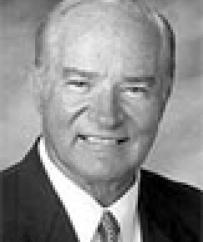Deliberating in front of packed board meetings in June and July, the Metro Board of Directors has approved a plan to seek a half-cent sales tax on the November countywide ballot. Expected to raise about $40 billion over the life of the tax, the revenue generated by the sales tax would be a significant source of funding for Metro to complete current projects and move forward with a lengthy queue of worthy projects awaiting funding. In order to understand the impact that such a tax could have on the region's transportation planning, MIR was pleased to speak with Metro Board Member David Fleming.

David Fleming
As we do this interview, we've been following the action on June 26 by the Metro board with respect to the sales tax initiative and discussion of a long-range plan for the region. What is the significance of that board meeting and the actions taken?
It was an interesting board meeting, probably the longest one we've had in years, and attended by more people than I can recall at any other meeting. These people were very, very passionate about getting the transit help that they need for their particular regions.
We heard from virtually all of them, and the only conclusion you can draw from that meeting is that with the problem that we have at the federal level in getting funding and the problem that we have at the state level because of the severe cutbacks we expect from Sacramento due to budget constraints, it is absolutely vital that we step forward with the half-cent sales tax and get voter approval for this measure in November.
We expect the initiative for a half-cent sales tax to do a lot of things-first, to finish up transit projects that are underway; second, to provide for a lot of the roads that need improvements, including on-ramps and off-ramps; and third, to establish new, absolutely vital transit projects. Those were the projects that all of those people came and talked to us about.
MIR has done many interviews over the years about the challenges for transportation and infrastructure investment in the L.A. basin, especially regarding bond issues and goods movement. What are your hopes and expectations over the balance of this year for meeting any of those challenges?
We're not going to meet those challenges unless we "grow the pie," as Zev Yaroslavsky said. We have to get more money, and we have to get it at the local level. The only way we can do it is through a sales tax, much like Prop A and Prop C, which passed years ago and made possible the subway and the light rail systems that we have today. That's absolutely necessary.
I have to say this: it's going to be a tough sale. We have difficulties in the economy; we are in a recession-there's no question in my mind about that; people who voted for Prop 1B at the state level a few years ago to get bonding money for transportation saw some of that money get yanked away and put into the general fund in Sacramento. That means that people will hesitate about voting any more money for anything on a governmental level-they're afraid that money could be used for another purpose-which is why I'm proposing to have an independent oversight committee monitor how it is being spent.
It's not going to be easy. But we're not going to get any transportation improvements without more money, and we have to do it ourselves. At this stage of the game, we're not going to get state or federal money of any consequence for the next few years.
Demand for relief is coming from all the sub-regions in L.A. County, and trying to focus and prioritize these funds is a tremendous political challenge. How will Metro balance all these legitimate competing demands and reach a consensus sufficient to get a two-thirds vote in November for the sales tax?
It's always been that question: Who will be the first among equals? We're going to have that problem again. However, most of it is going to be based purely on need. What lines do we need to get the greatest number of people out of cars and into transit? Where is the greatest population centered? We're going to look at income. We're going to look at all those things.
But if we get the money that we need through this sales tax, we are probably going to be able to do 80 percent of all of these projects. Some projects may be delayed, but they'll get done. Without the sales tax, they won't get done.
If we talk again during the second week of November, what likely will be the focus of our interview?
I hope we're going to be talking about spending the money and starting needed projects. What we're talking about is a sales tax that's going to be in effect for 30 years and that's going to produce something in the area of $40 billion. Forty billion is more local dollars than we have spent on a transit project to date. We're talking about needed projects, more and better roads, and real traffic congestion relief throughout our region.
- Log in to post comments



